By Adam Pagnucco.
I have been writing about crime quite a bit lately. Last year, it was a big deal in the county executive election (in which I worked for David Blair) and it’s still a big concern for many residents. But under normal circumstances, crime has usually not been a hot issue in our county’s politics. It has been a secondary issue at best to the Big Three – education, transportation and development – in most county elections.
That said, there was one historic race in which crime was front and center. Let’s go back to 1998, when Montgomery County had one of the most intense elections for State’s Attorney in its history.
The incumbent State’s Attorney was Robert Dean, a career prosecutor. Dean’s long-time boss, State’s Attorney Andrew Sonner, was appointed to the Maryland Court of Special Appeals in 1996 and Dean was appointed to fill the remaining two years of Sonner’s term. Besides his abbreviated incumbency, Dean had two big problems.
Problem number one was Teresa Whalen, a prosecutor whom Dean fired. Whalen sued him for sexual discrimination, alleging that she had been fired after the two had an affair. Dean was married and had six children. Dean admitted to the affair after Whalen publicly released two romantic poems and a note he had written to her. One of the poems read in part:
Immersed in the busy swirl of life
I pause, sometimes strain to catch a brief moment.
It brings a warm smile to my heart.
You are that moment and all the good that it brings…
Your lips as they slightly turn to a smile.
When they touch mine
They speak their own language.
Whalen’s allegations plagued Dean for most of his time in office.
Problem number two was Doug Gansler, who was then a federal prosecutor and had unsuccessfully applied for the appointment that had gone to Dean. Then and now, Gansler was a savvy politico who saw weakness and pounced. One of his top allies was American University professor Jamie Raskin – yes, THAT Jamie Raskin – who signed on to be Gansler’s campaign chair as he ran against Dean. Also running against Dean was defense attorney Timothy Clarke.
Gansler let the press do the dirty work on the Whalen issue while he pounded Dean on crime. Check out the mailer below in which Gansler blasted Dean for admitting to a mistake in failing to prosecute a suspect who was later accused of murder.
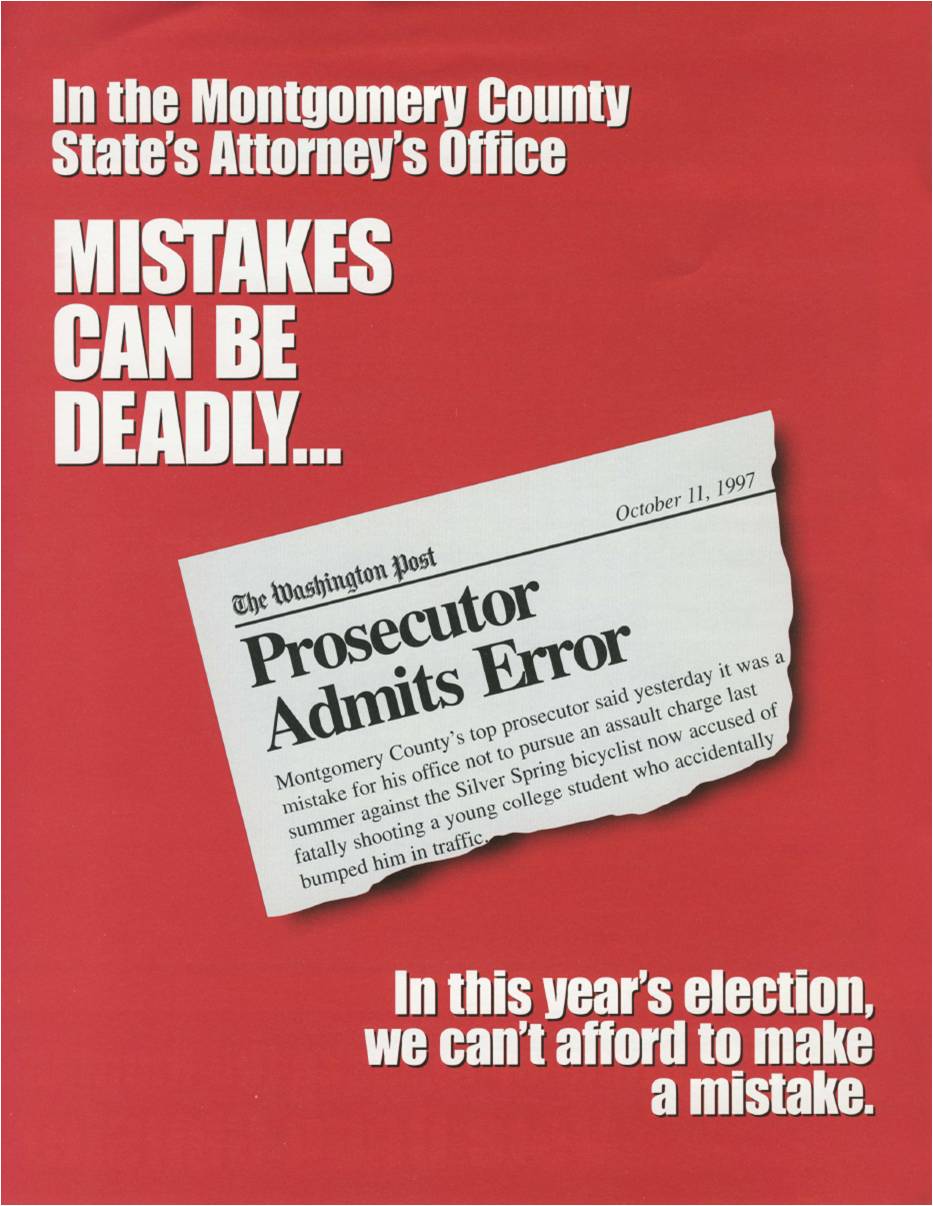
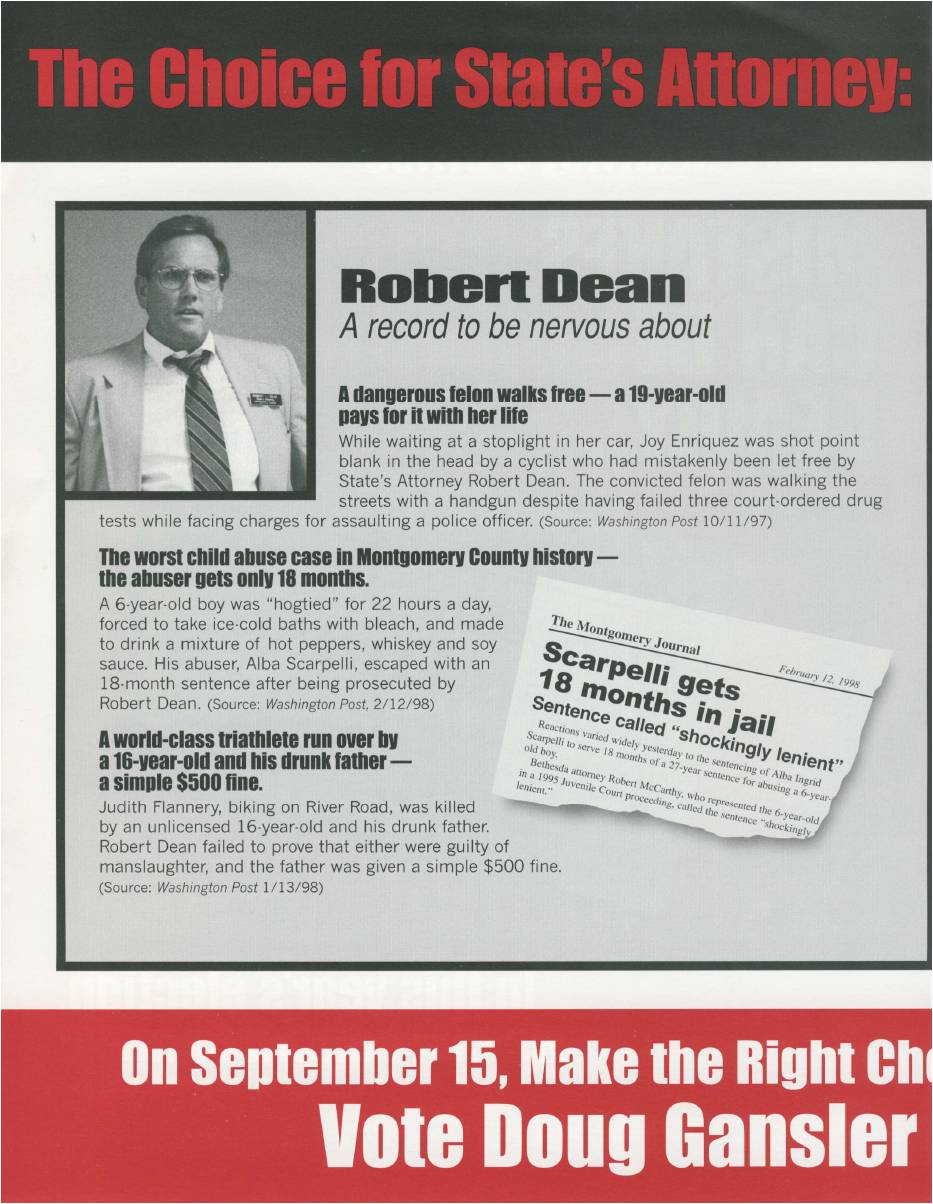
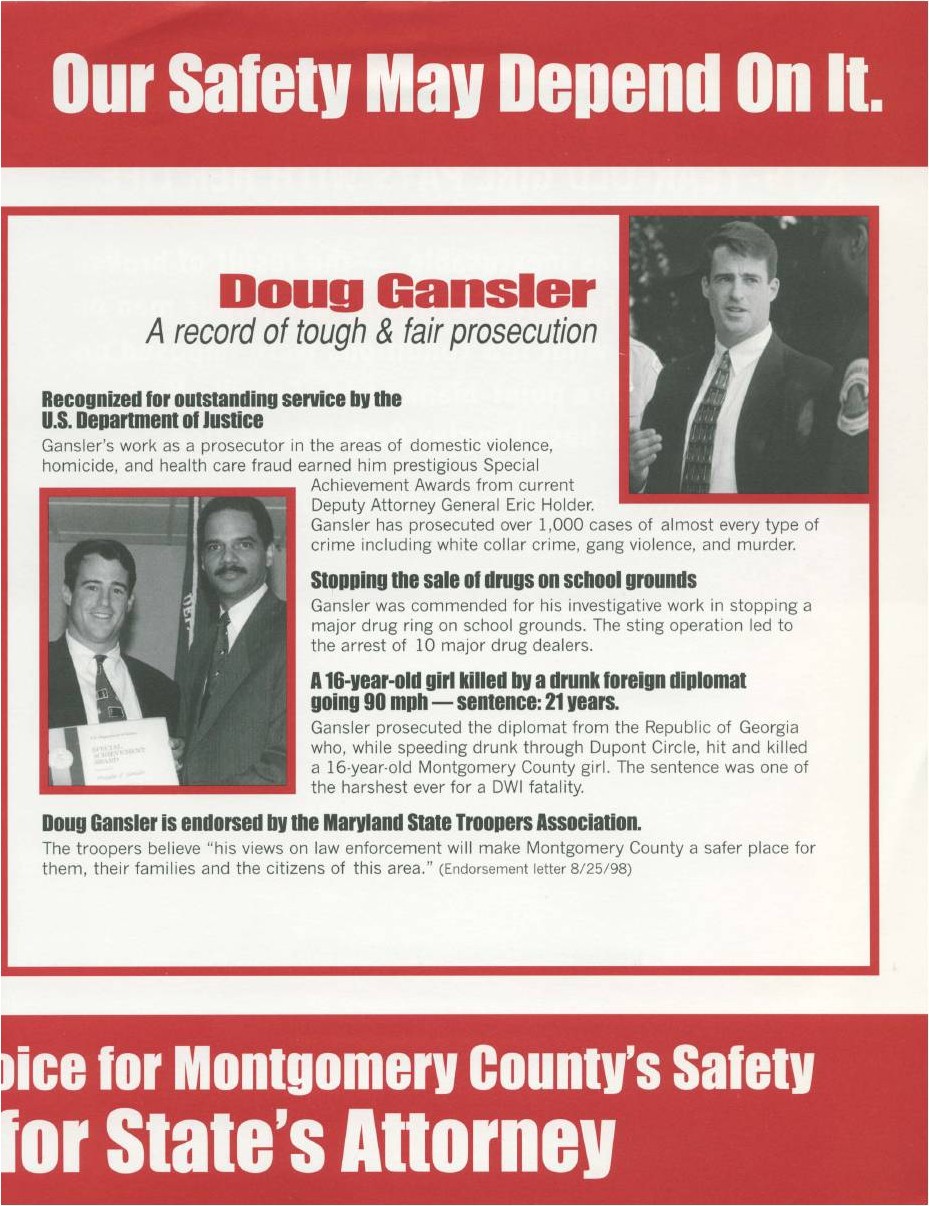
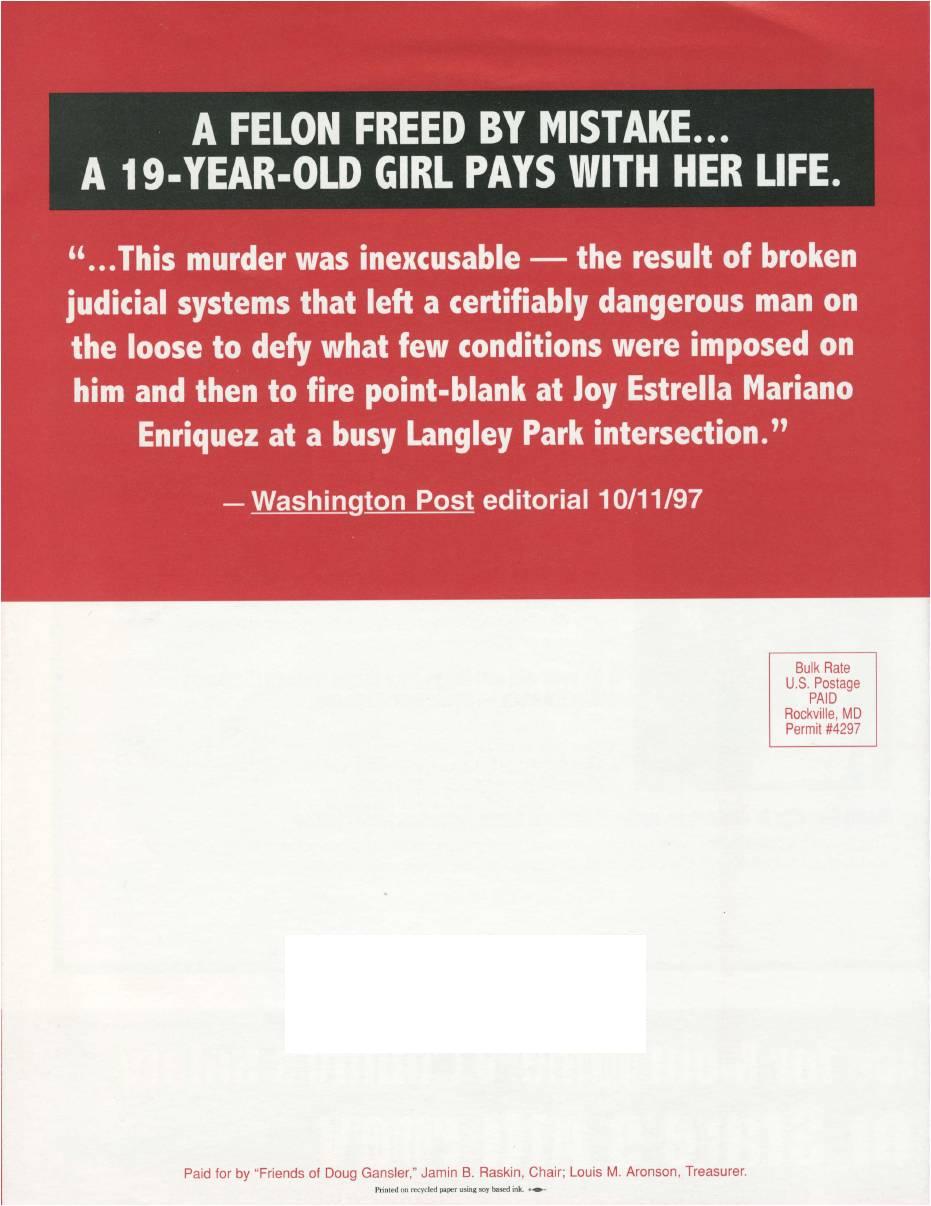
As if that wasn’t enough, Gansler also accused Dean of “Chicago” politics for allegedly politicizing the State’s Attorney’s office.
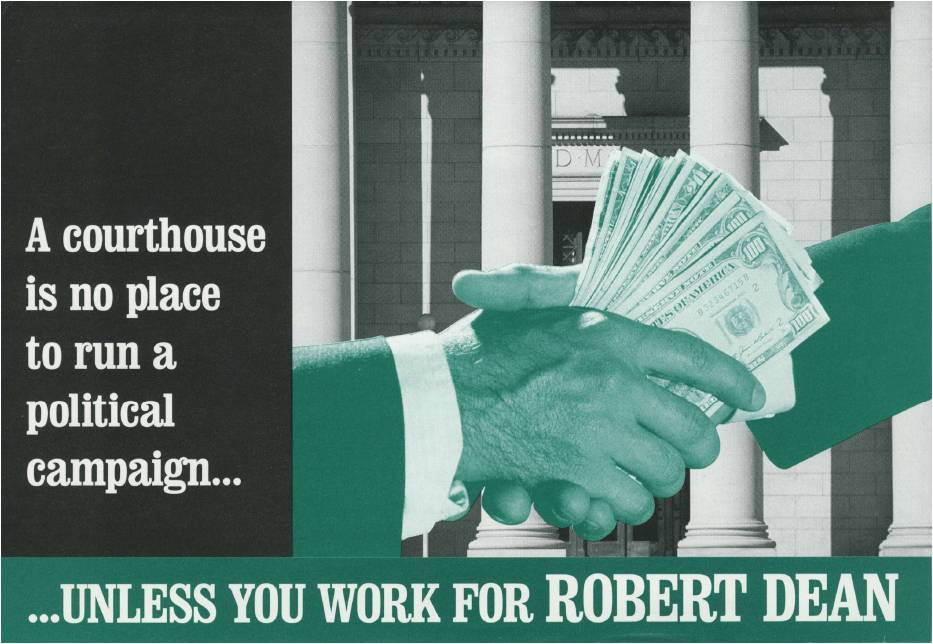
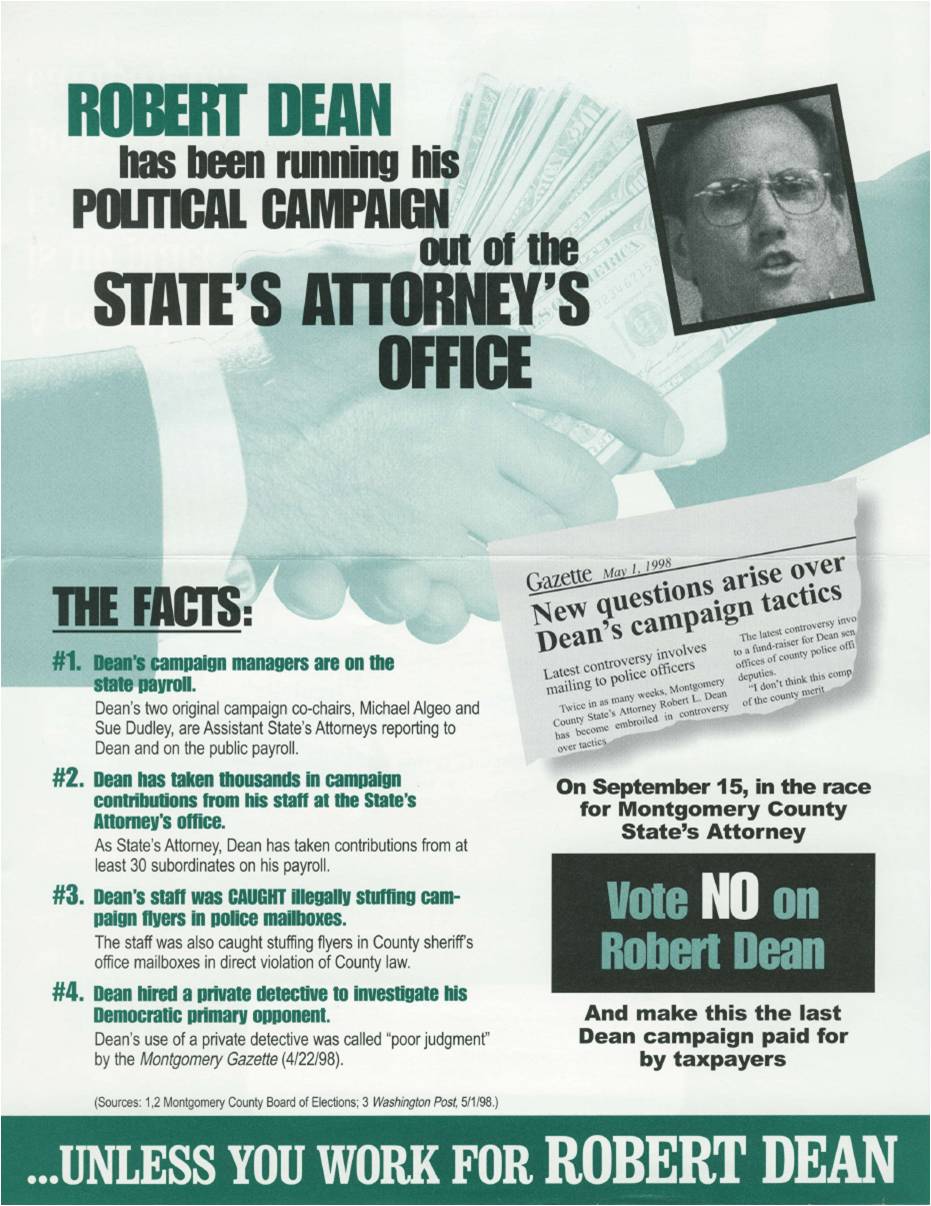
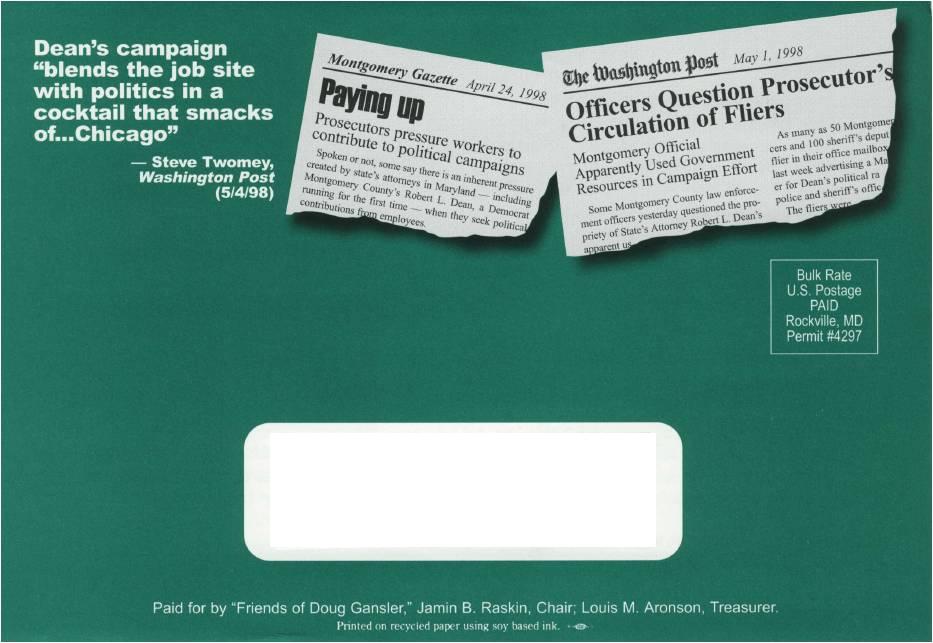
While Gansler had Raskin, Dean had allies of his own, notably District 18 Delegate John Hurson, who was his campaign co-chair. At the time, Hurson was House Majority Leader and was one of the craftiest – and most influential – delegates in Annapolis. Dean’s other co-chair was District 20 Senator Ida Ruben, whom Raskin would take out 8 years later. (What a fun run down memory lane this is!) They headed up an all-star cast for Team Dean.
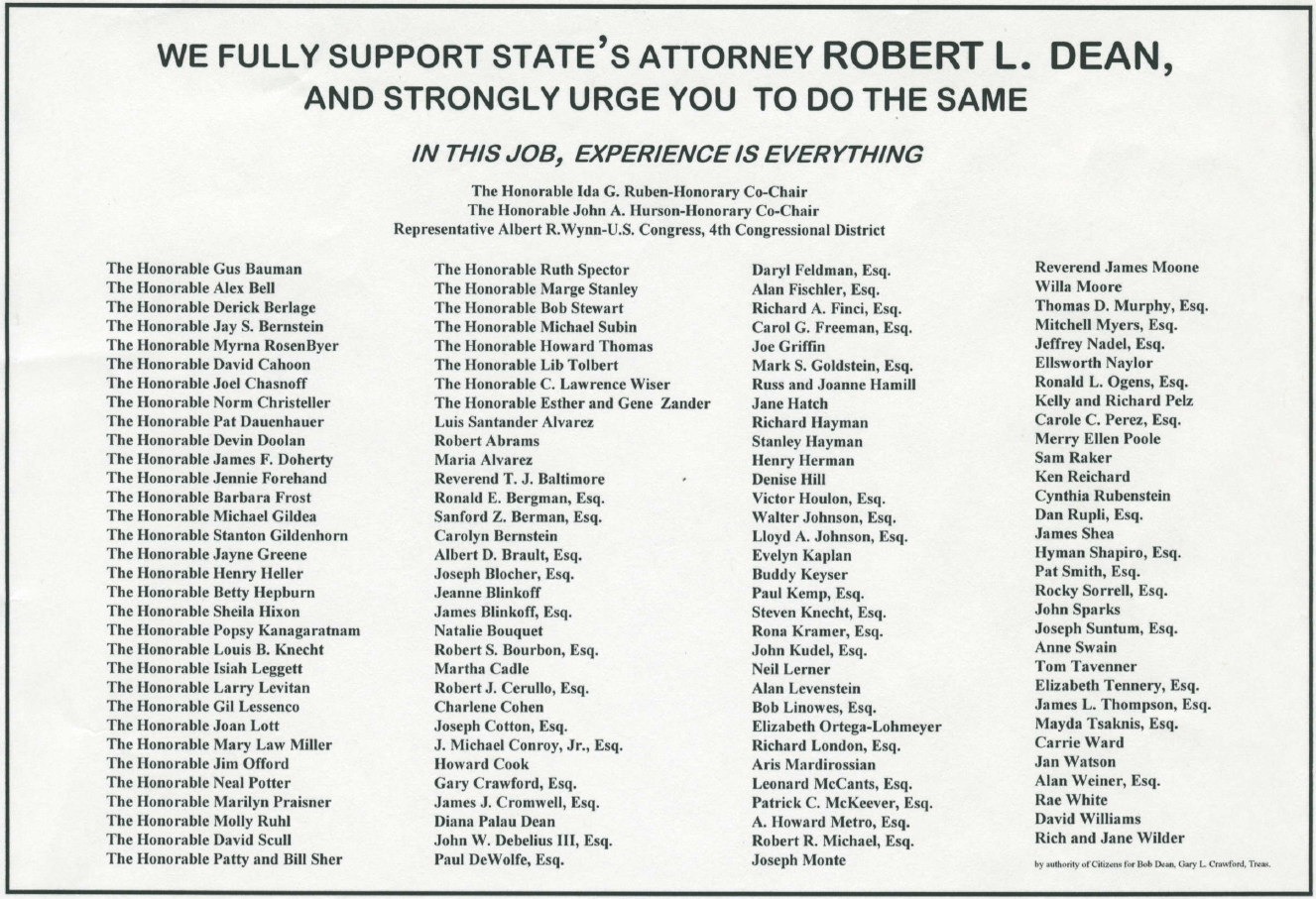
Dean’s case against Gansler was one of experience. Dean claimed that Gansler had never prosecuted a case in Maryland and never had to oversee a budget. According to Dean, it was Gansler’s inexperience that was the real threat to public safety rather than any mistakes Dean had committed.
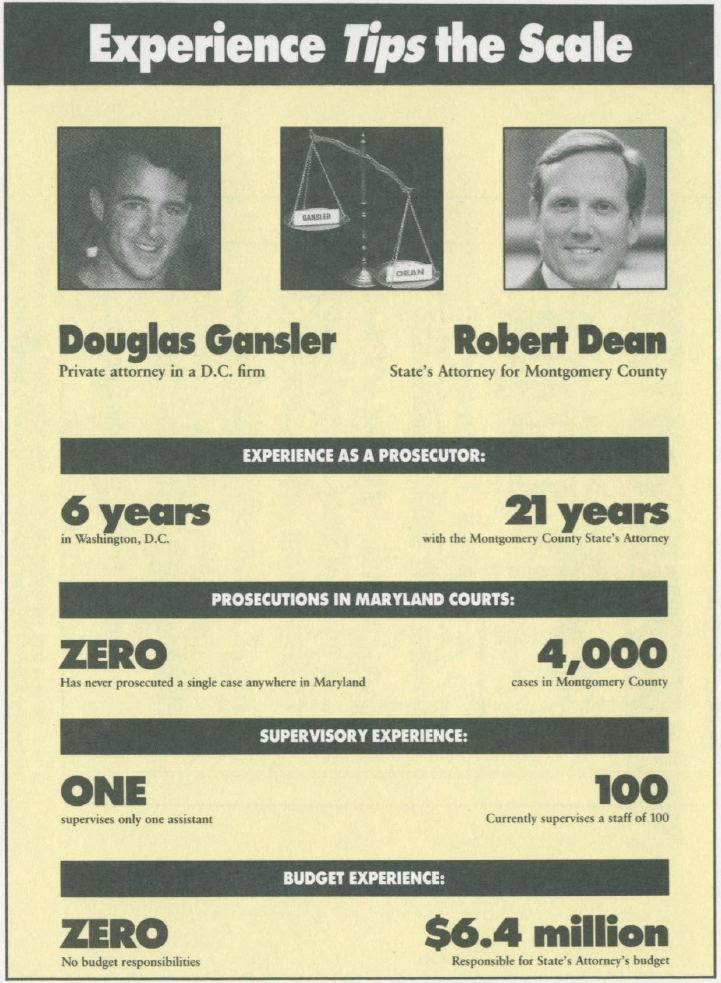
This was unquestionably one of the toughest races in MoCo history. Gansler told the Post, “Violent crime has risen 43 percent in Montgomery in two decades, while declining 36 percent in Fairfax. I plan to clean out the lethargic, embarrassing clubhouse atmosphere of the state’s attorney’s office and institute an innovative, effective and proven community prosecution program wherein each police district has a team of prosecutors assigned to work in its area and its schools.” Dean’s campaign called Gansler’s campaign literature “negative, misleading and an embarrassment.” Folks, never believe anyone who tells you that MoCo has no history of negative campaigning!
In the end, Gansler beat Dean in the primary by 12 points and would go on to defeat criminal defense attorney Thomas O’Malley in the general election. (O’Malley was the father of future Governor Martin O’Malley.) In his first year in office, Gansler settled with Whalen – Dean’s accuser – and paid her $320,000. He would go on to prosecute the Washington snipers and serve two terms as Maryland’s Attorney General.
Besides its raw negativity, the Gansler-Dean race is notable for one other thing. In that election, the combatants accused each other of not being up to the job of taking on criminals. In the 2022 State’s Attorney race, the opponents of incumbent John McCarthy criticized him for allegedly paying too little attention to criminal justice reform. (McCarthy won easily.) That says a lot about how the politics of criminal justice and of Montgomery County have changed since the 1990s.
